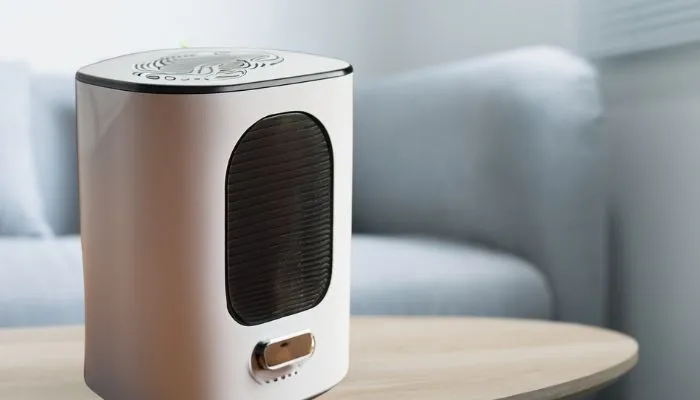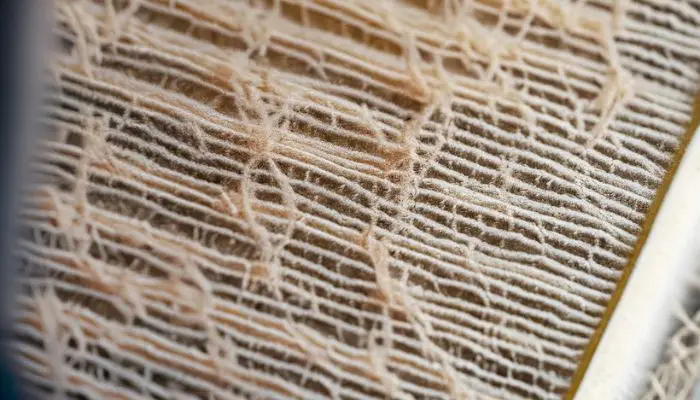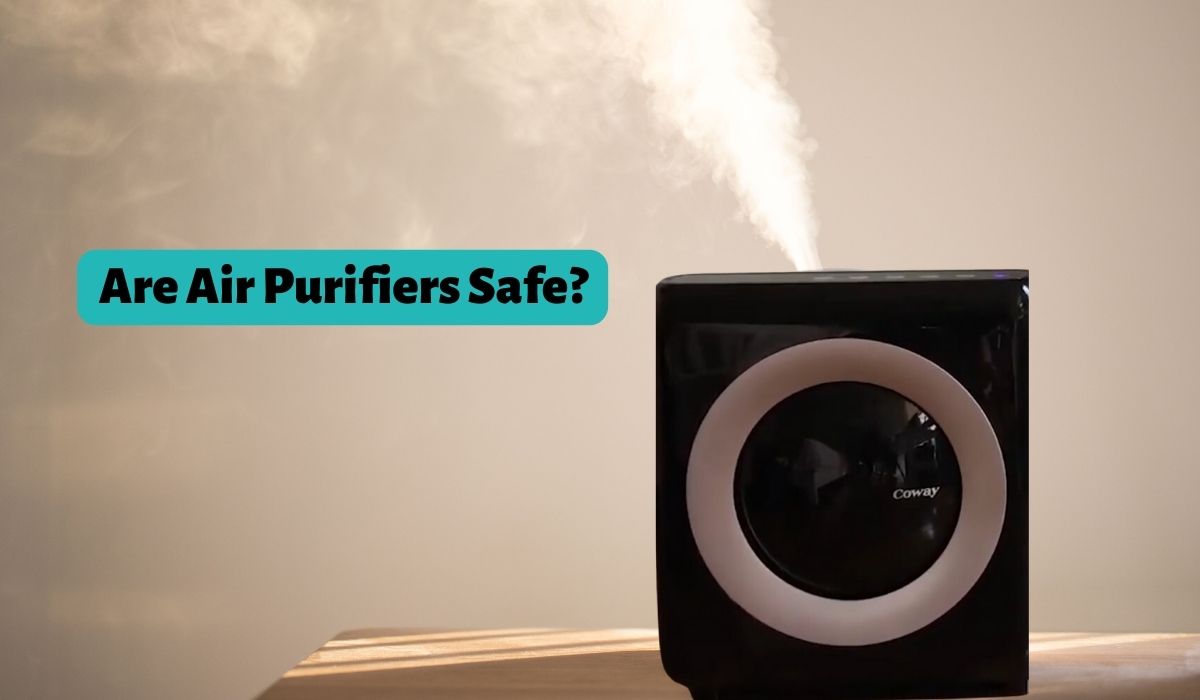Last Updated on May 1, 2024
Thanks to how rapidly pollution is rising, air purifiers are slowly becoming more popular. But have you ever wondered if the promise of keeping the air of your home clean comes with compromises?
Are air purifiers safe?
Not all the air purifiers are safe for you. On the safer side, you have filtered air purifiers, which utilize high-efficiency filters such as HEPA to keep the indoor air clean. And on the contrary, air purifiers with ionizers and ozone or UV-C are unsafe.
But what actually makes the filtered air purifiers safe and the air purifiers with ozone and ionizers unsafe? Well, that is exactly what this discussion will shed light on.
So, if you really want to get to the bottom of the topic, you should keep reading.
Types of Air Purifiers Available to Purchase
Before you get a detailed look at which air purifier is safe and which is not, you should clearly understand each. So, as you might already know, there are three different types of portable air purifiers. They are:
1. Filtered Air Purifiers
As the name suggests, filtered air purifiers come with a filter. In most cases, it will be HEPA filters, which can remove at least 99.97% of airborne particles.
That is, these filters cannot only help with dust but also mold, bacteria, and other airborne particles that are 0.3 microns in size.
But this efficiency and capabilities are only true for proper HEPA filters. And you should note that not all the filtered air purifiers will come with HEPA filters. Some will use only activated carbon filters to clean the air of indoor spaces.
2. Electrostatic Air Purifiers
The electrostatic air purifiers utilize static electricity to catch airborne particles as they pass through the filter. In general, these purification devices will either make the captured pollutants settle on nearby surfaces or the internal metal plates.
But the real question is, how do these capture the pollutants in the air?

Well, these devices electrically charge the airborne particles and make the metal plates attract them. Here, the metal plates of these air purifiers are of opposite charge.
In simpler words, these air purifiers act like a magnet for dust, debris, and other airborne particles. And if you are wondering, electrostatic air purifiers can capture particulates, common allergens, and general dust.
3. UV Light Air Purifiers
Again, the name of these air purifiers tells it all. These come with UV light technology to capture air particulates and clean the air.
Wondering how UV air purifiers work?
The air basically goes through a small chamber within the devices. In this chamber, the air gets exposed to UV-C light, which disrupts the DNA of contaminants within the air and destroys them.
That eventually means that UV light air purifiers are highly effective against viruses, bacteria, and other microorganisms. Nonetheless, with the DNA destroyed, these pollutants cannot reproduce, eventually making them die out.
Problems with the UV-C and Electrostatic Air Purifiers
With the basic understanding of the types of air purifiers out of the way, let’s jump back to the main topic. As discussed earlier, electrostatic devices with ionizers and UV-C devices are not safe for you. Here’s why –
Electronic Air Cleaners
The issue with electrostatic or electronic air cleaners is that they utilize high electric voltage. That can convert oxygen molecules into charged components.
Although these charged oxygen molecules inactivate the other contaminants, you should note that they are reactive radicals. In other words, they are capable of removing hydrogen from other molecules.
That process is basically called bipolar ionization, which can destroy germs and pathogens. But as a by-product, bipolar ionization is known to emit ozone and other free-radical species.
These free-radical species can be harmful to human health. They have the ability to damage cells and cause oxidative stress. And cellular damage and oxidative stress can eventually lead to illness and quicker aging.
UV-C Air Purifiers
At the core, ozone is a colorless gas generally found naturally in the earth’s upper atmosphere. It protects us from harmful ultraviolet rays. However, it can also be formed at ground level.
Wondering what can form ozone at the ground level?
Well, as you might have guessed, a UV-C air purifier is one of such threats. Although the ozone created by these devices deactivates the pollutants, it also creates unstable oxygen molecules.
And you already know what unstable oxygen molecules can do. Yes, they can cause cell death. They can also cause damage to the RNA, DNA, and proteins.
In addition, the produced ozone can react with the existing chemicals in the room. That will eventually create harmful by-products, such as formaldehyde.
What Makes Filtered Air Purifiers Safe?
Filtered air cleaners are simple and utilize a very basic mechanism to clean the air in your home. They use filters through which the air passes to become clean.
While the air is passing through, the polluting particles and gases become sequestered. There’s no involvement of electrostatic charges or UV-C light. That basically makes them incapable of emitting ozone and other free-radical particles.
And it does not matter which filter the air purifier is using. Whether a carbon filter or HEPA filter, a filtered air purifier will not produce harmful elements as by-products.
In short, filtered air purifiers utilize mechanical power to clean the air. And in the mechanical process, there’s no risk of exposure to harmful elements.
Filters of Air Purifiers Explained
As hinted earlier, mechanical air purifiers will either use an activated carbon filter or a HEPA filter. And if you are wondering what they are capable of, here’s a short description of both –
HEPA Filters
High-Efficiency Particulate Air (HEPA) filter is a kind of pleated mechanical air filter. Depending on the type, it can remove at least 99.97 percent of airborne particulates that are 0.3 microns in size.
That includes mold, bacteria, pollen, and dust. But why exactly do HEPA filters highlight the particulates of 0.3 microns? Well, these particles are the most challenging to remove in the air purification world.

And as these filters can handle 0.3-micron particulates well, they are naturally more than 99.97 percent efficient in clearing out the other particulates.
Carbon Filters
The carbon air filter is a type of air filter that utilizes activated carbon to capture and remove certain types of pollutants from the air. With this mechanism, they can reduce odors and clean airborne particles.
In other words, activated carbon filters are very effective against volatile organic compounds. So, they are great at keeping odor out of indoor spaces.
High-end air filters will generally utilize carbon air filters in conjunction with HEPA filters. This combination allows them to keep the air clean and make it smell good at the same time.
Frequently Asked Questions
1. Can air purifiers make you sick?
Air purifiers should not make you sick if they do not produce anything harmful as a by-product. But if you are relying on an air purifier that’s not marked to be 100% safe, you can fall sick from it.
2. Can air purifiers cause sore throat?
Some of the adverse effects of air purifiers include Asthma attacks, headaches, coughing, and, most importantly, sore throat. Again, if you are using a good air purifier, these should not be a concern.
3. Can air purifiers cause breathing problems?
Air purifiers can cause breathing problems. However, that would only be true if you use an ozone-generating air purifier. Filtered devices with functioning filters should not make you face any adverse effects.
4. Are air purifiers safe for pets?
Air purifiers with no harmful elements are totally safe for pets. Now, in case you are wondering, mechanical or filtered air purifiers are the ones that do not have concerning elements concerning them.
5. What can you use instead of an air purifier?
While many believe that plants can reduce the levels of contaminants, no current evidence regarding that exists. Instead, you can keep the pollutants level low by controlling the source of pollution and improving the ventilation.
Final Words
So, are air purifiers safe? In short, it depends on which type of air purifier you are talking about. If it is an air purifier with electrostatic filters or UV-C tech, it is unsafe as there’s a risk of exposure to ozone and free radicals.
On the other hand, filtered air purifiers are deemed to be 100% safe as they utilize a mechanical process. They do not emit ozone, nor is there a need to worry about getting the room filled with free radicals.
